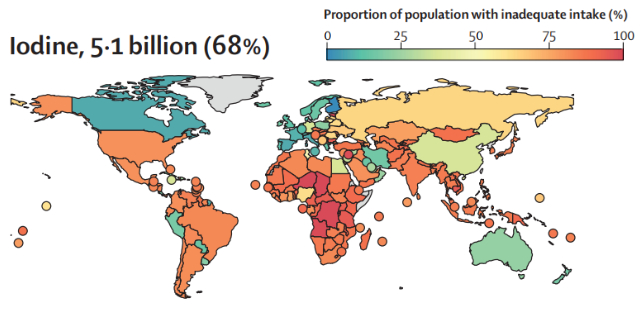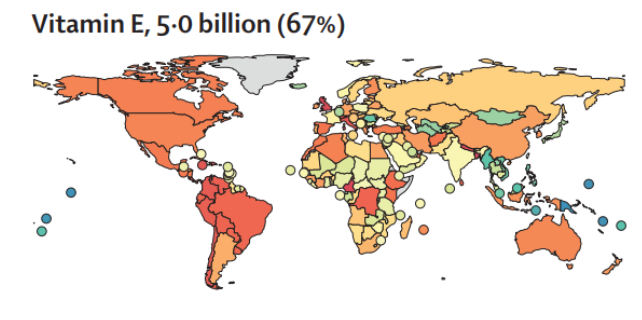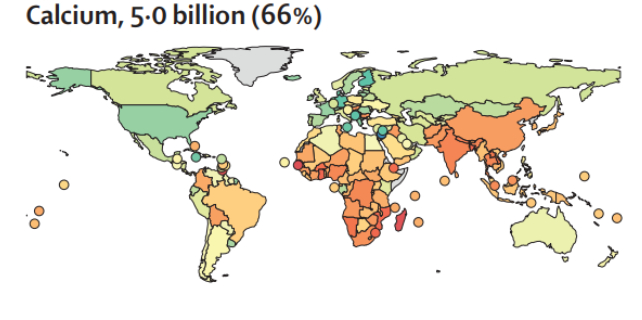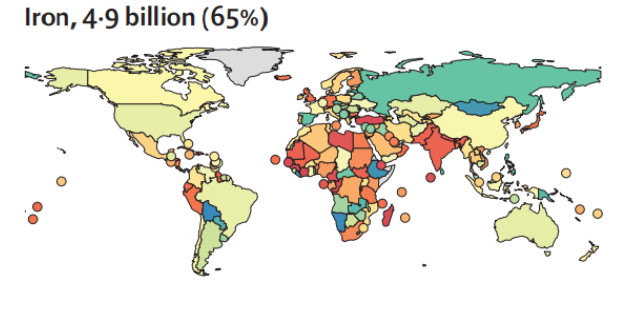Four Essential Nutrients are shockingly lacking in Over 60% of People’s Diets
It may be time to look again at your diet: a new study suggests that two-thirds of the world’s people are deficient in four essential vitamins and minerals from food and their drinks.
Recent study researchers, from the Harvard TH Chan School of Public Health, the University of California, Santa Barbara (UCSB), and the Global Alliance for Improved Nutrition (GAIN), say it’s a wake-up call for global health. yes.
Using a combination of data collected from the Global Dietary Database and statistical models developed by the researchers, the team estimated micronutrient levels in the diet for 99.3 percent of the world’s population, across 185 countries.
“These results are alarming,” says food scientist Ty Beal, of GAIN. “More people – more than previously thought, in all regions and countries of all incomes – do not eat enough micronutrients.”
“These gaps undermine health outcomes and reduce human capacity worldwide.”

The main list of insufficient food intake was iodine. It is important for the production of the hormone thyroxine, which maintains immune cells, is important for heart health, weight, brain development and much more. Iodine is found in seafood and dairy products, and 68 percent of us are deficient.

Then there is vitamin E: 67 percent of people are deficient here. Found in foods such as nuts, seeds and eggs, the vitamin helps with waste in the body, and is important for cell signaling and protecting the body from infection.

Next we have calcium, which our bodies depend on for strong bones and teeth, as well as the proper functioning of our heart, muscles and nerves. It’s found in foods including milk, cheese and green leafy vegetables, and 66 percent of us don’t get enough of it in our diets.

In fourth place was iron, and 65 percent of the diet lacked it. Iron can be found in liver, red meat and beans, and is essential for producing hemoglobin which we need to carry oxygen around our body. Iron deficiency can lead to fatigue and headaches, as well as many other health problems.
Although there are some limitations here – the study did not take into account the use of supplements and fortified foods, for example, and includes some estimates – it is a comprehensive breakdown of food insecurity over the years and people of different sexes.
The team behind the research hopes that the findings can help drive a better attitude towards a balanced diet for the population, leading to fewer health problems caused by a lack of basic nutrients. which our bodies need to keep going.
“The public health challenge we face is huge, but experts and policy makers have the opportunity to identify the most effective food interventions and target them to the people most in need,” says Christopher Golden, an epidemiologist at Harvard University.
Research published in Lancet Global Health.
#Essential #Nutrients #shockingly #lacking #Peoples #Diets